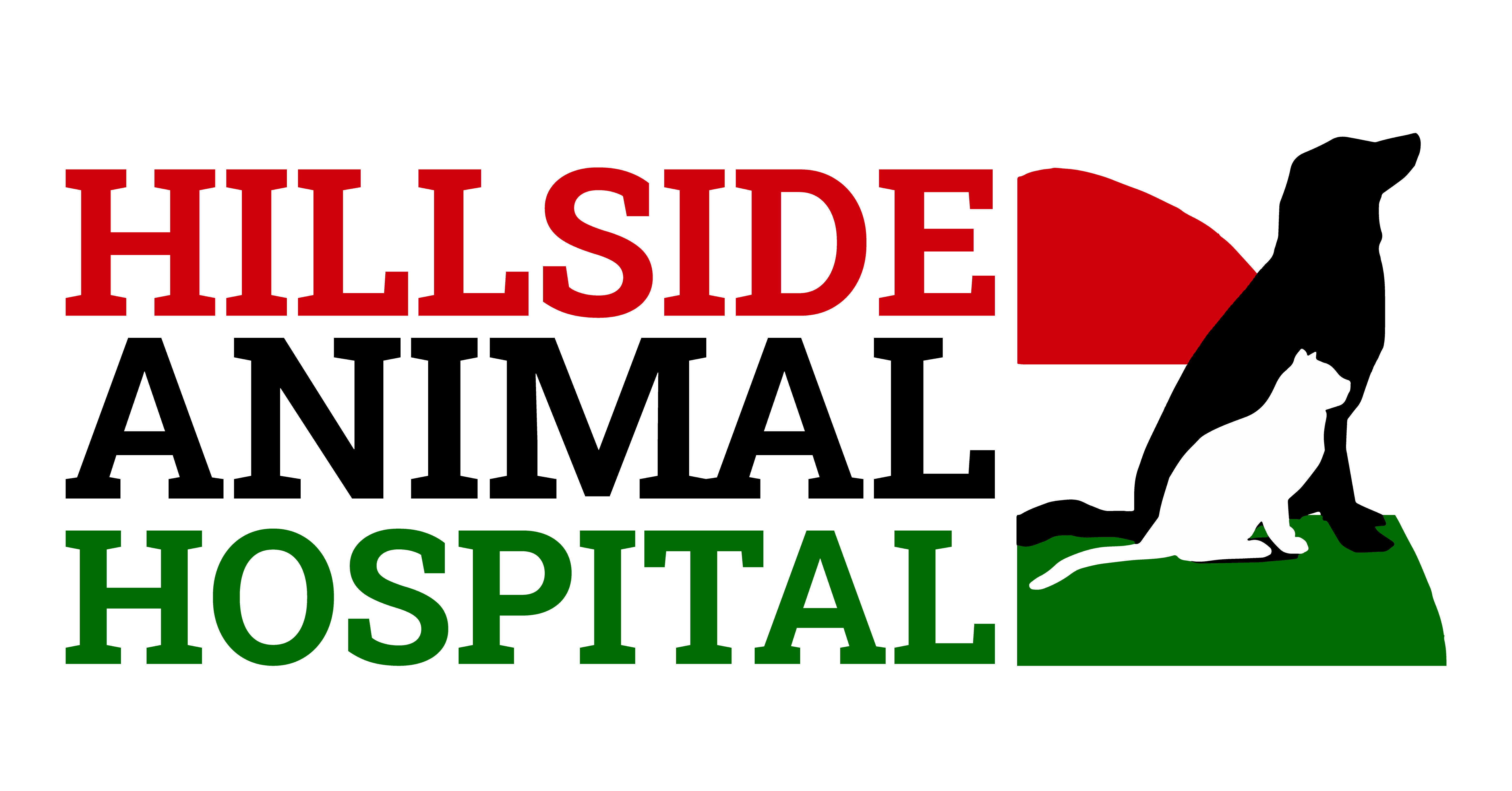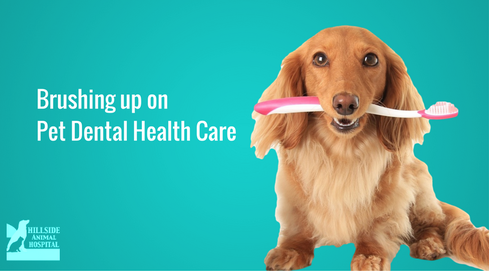Oral health and dentistry is an area of medicine that our veterinary hospital is extremely passionate about. This is for good reason too. It has been suggested that as much as 80% of pets have some form of dental disease. Many pet owners are unaware of the negative effects oral health disease can have on a pet’s overall health. Often, it can be shocking to pet owners when their veterinarian comments on their pet’s poor oral health. Luckily, there are products, preventative measures, and procedures that can help in preventing oral disease. By discussing the importance of oral health and dentistry, together as a team, the veterinary staff and pet owners can work together to determine the best treatment plan for your pet.
What is poor oral health and why is it a cause for alarm? Oral health can be described using many different terms. Vocabulary used to describe infections of the oral cavity are: Gingivitis meaning inflammation of the gum tissue, plaque, and calculus are both types of buildup that accumulate on the surface of the tooth that leads to infection, and periodontitis which is a term used for disease of the oral cavity. Having an infection in their mouth can lead to long-lasting adverse effects on the rest of their body. The bacteria living in the mouth give off toxins. These toxins in the mouth can enter the pet’s bloodstream. Blood is filtered through several organs such as the kidneys, liver, and heart. While the blood is being filtered through these organs, the toxins can cause damage to these tissues. These oral infections can progress mostly due to owners not being aware of what to look for.
Many pet owners are unaware of the signs of oral and dental disease in their pets. Therefore, when it is mentioned there is an infection in their pet’s mouth, it can catch them by surprise. Signs that are most common when there is an infection are: foul odor from the mouth, loss of appetite, blood coming from the mouth, drooling, and if you can examine your pet’s mouth, discoloration of the teeth. Fortunately, advances have been made in veterinary dentistry allowing for the most current standard of care.
Think of it this way: What condition would your teeth be in if you never brushed, or only brushed your teeth occasionally? It is the same for your pet. Many pet owners are unaware that their pet’s teeth need daily attention. It is recommended by the American Veterinary Dental College (AVDC) to brush your pet’s teeth daily. Brushing their teeth can really benefit your pet, and not to mention, your pocketbook!
Professional dental cleanings can range in price, but generally in the $400.00 to $1,000.00 range depending on the severity of the disease and infection, and if they would require extractions. If extractions are needed, they would receive extra pain medication and possibly antibiotics. It is never too late to incorporate a daily brushing routine with your pet! There are several youtube videos you can watch or a staff member at Hillside would be happy to show you the proper way to brush your pet’s teeth. If brushing is absolutely, out of the question, there are other options available. There are chews and oral rinses that we carry that can be used to help prevent dental disease. While they are not as effective as brushing, they certainly will help. Even animals that have their teeth brushed daily, at some point may require professional dental cleaning. Professional dental cleaning requires anesthesia. Here at Hillside Animal Hospital, we use the standard of care when we approach a dental plan for our patients. We always perform a physical examination and run lab work before proceeding with a professional dental cleaning. Once under anesthesia, we will perform a full oral cavity exam to look for any abnormalities, as well as, a full set of dental radiographs. Radiographs are extremely important in veterinary dentistry due to 2/3 of the tooth laying below the gum line. If there are issues, we will be able to address them.
As you can see, dentistry is a vital role in your pet’s overall health. Infections in the mouth can lead to other medical issues and even cause damage to other organs. By knowing and understanding what signs you should look for, will help you determine if you need to take your pet into the vet for an oral health screening. Utilizing options available to do preventative care at home will pay off in a big way. Being proactive in regards to the oral health of your pet, you can help them live a longer and healthier life. If you are at all concerned about your pet’s oral health, or if you have questions on what you can do at home, we would love to help you. We offer FREE oral health screening with one of our technicians. Together, we can develop a treatment plan that is tailored to your lifestyle and that would best benefit your pet.

